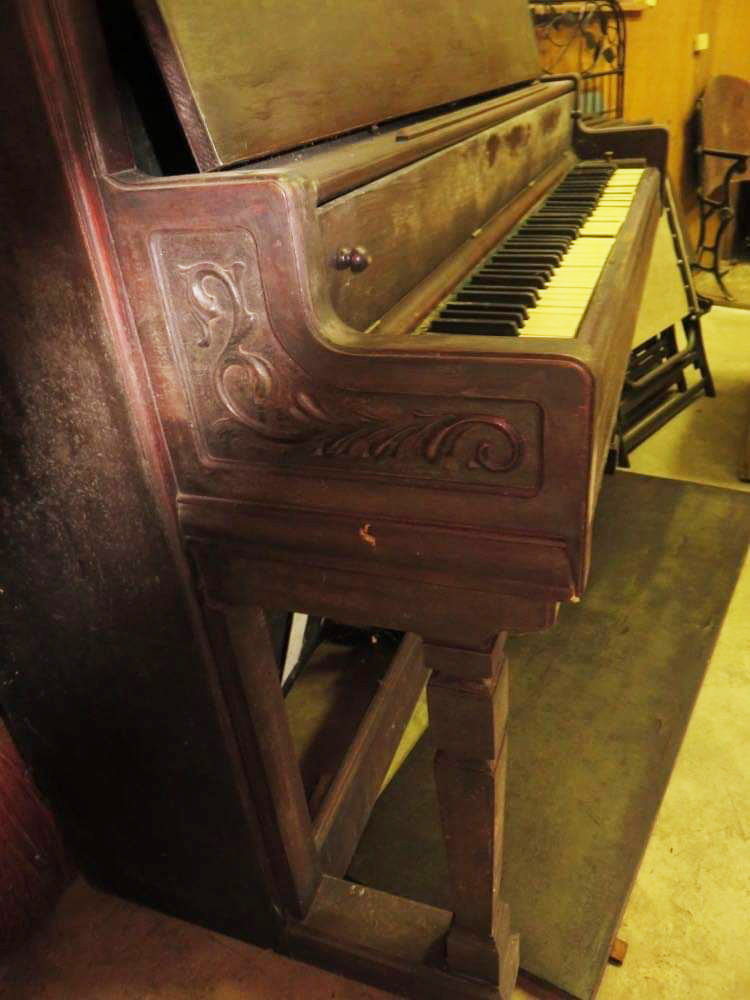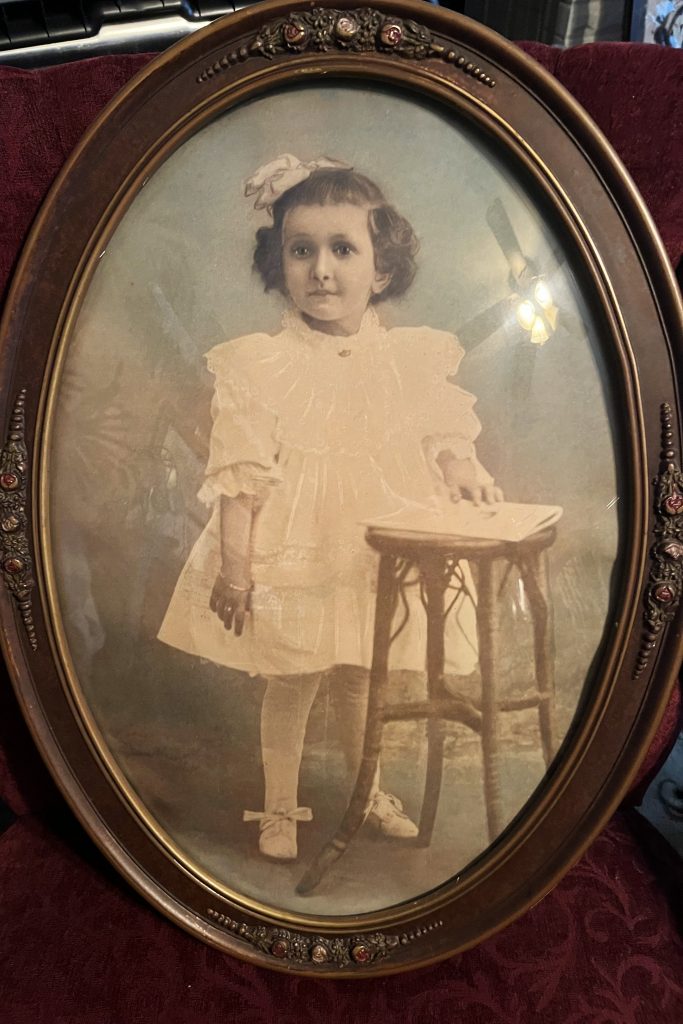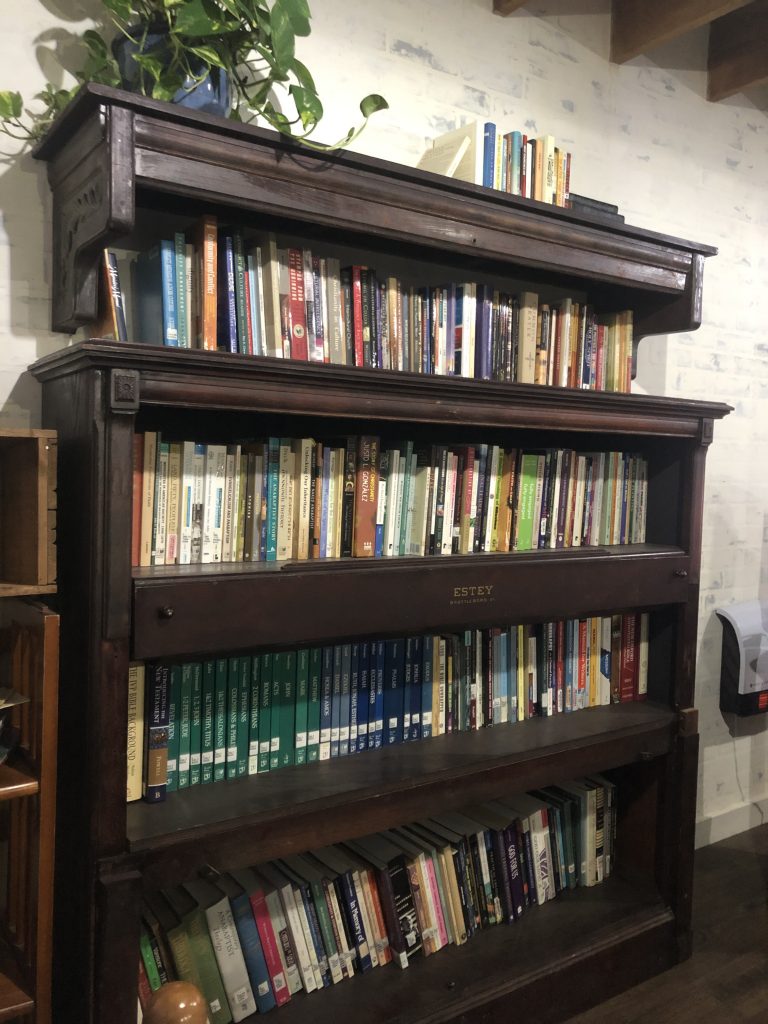by Emily Ralph Servant
I took a deep breath and guided my circular saw across the center of my great-grandmother’s pump organ. The first cut was the hardest.
Although it looked like an upright piano, pianos were expensive in the early 20th century. Families who couldn’t afford to buy a piano would purchase a (less expensive) organ in a piano case. My great-great-grandparents gifted this treasure to my great-grandmother in 1915, when she was 12 years old.
The organ had made the trek from Pennsylvania to Indiana, Illinois, Virginia, and Ohio, then back to Pennsylvania again. Over the years, most of the reeds had stopped working and mice had made their home in the billows. But I cherished the memories of it in my grandparents’ home, where my little feet would pump the pedals and my little hands would play unrecognizable music while it wheezed dozens of notes at once.

Two decades ago, my grandmother asked if anyone wanted the organ. She was considering turning it into an entertainment center and wanted to know if it was worth trying to restore it. I couldn’t stand the thought of our heritage organ holding a television set, so I told her that I wanted it someday. She spent countless hours with a local restoration specialist, learning how to replace reeds and repair cracks. She had only a few more repairs to do when she died suddenly in 2007. The organ sat in my parents’ home and later in their barn, unused: beautiful yet broken.

The organ was finally passed down to me and brought to my home in Baltimore after my parents downsized a few years ago. For a long time, it sat in my carport, too big to fit down the stairs to my basement. We live in a small rancher that’s filled with the furniture of everyday life; there was no room for it.
Eventually, I was faced with a decision: allow my great-grandmother’s organ to serve my family now and into the future or throw it away. There isn’t a market for broken pump organs in a society saturated with discarded instruments. The answer was clear.
I spent months brainstorming what I could build with it, wrestling to solve problems, to imagine its potential. The first cut was the hardest, but every cut after that got a little easier. As I rebuilt my great-grandmother’s organ, I began to see something new and beautiful arising out of her shell: something I could pass down to my children, something they might actually want.

My great-grandmother’s organ is now a bookshelf. It’s big enough to hold my entire library of theological books—for the first time in years, all my books are unpacked, easy to access and reference. Instead of simply taking up space, my great-grandmother’s organ is helping me and my family, providing what we need for our lives now, offering possibilities that will last into the future. The organ is beautiful once more, its dark wood gleaming next to the vibrantly colored spines of the books.
Whoever has ears, let them hear; God is doing a new thing and it is very, very good.
Whoever has ears, let them hear; God is doing a new thing and it is very, very good.

Emily Ralph Servant
Emily Ralph Servant is the Leadership Minister for Formation and Communication for Mosaic Mennonite Conference. Emily has served in pastoral roles at Swamp and Indonesian Light congregations and graduated from Eastern Mennonite Seminary.
The opinions expressed in articles posted on Mosaic’s website are those of the author and may not reflect the official policy of Mosaic Conference. Mosaic is a large conference, crossing ethnicities, geographies, generations, theologies, and politics. Each person can only speak for themselves; no one can represent “the conference.” May God give us the grace to hear what the Spirit is speaking to us through people with whom we disagree and the humility and courage to love one another even when those disagreements can’t be bridged.
